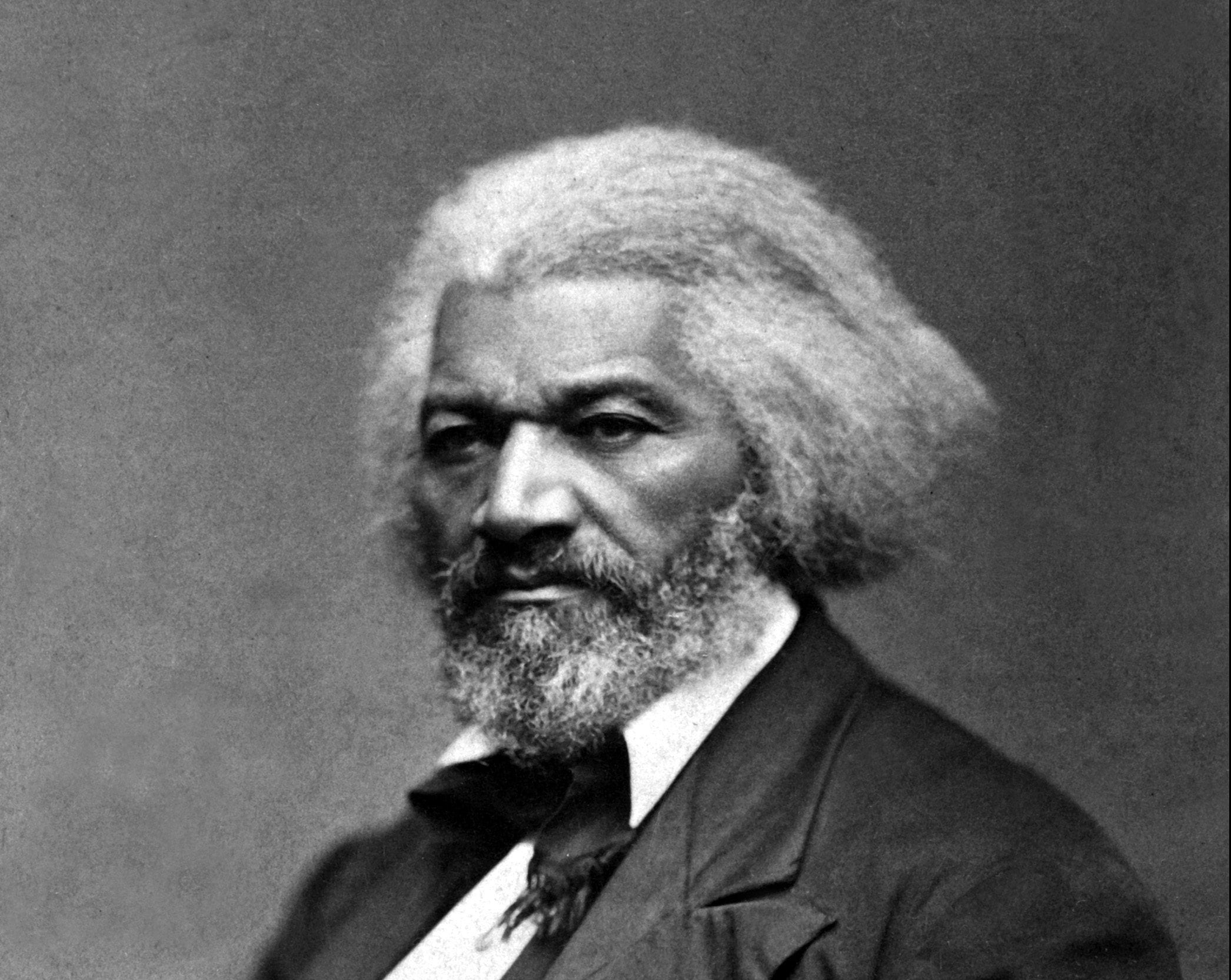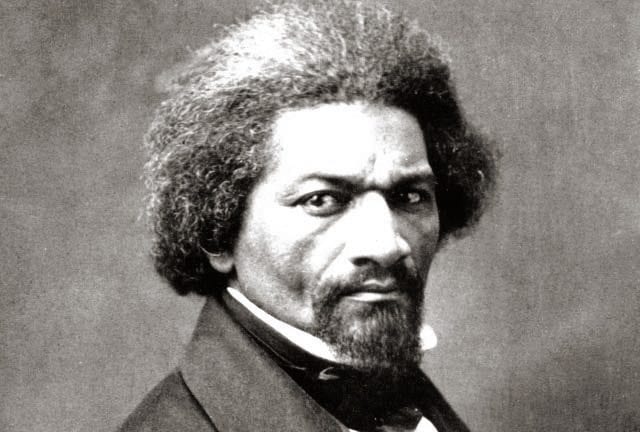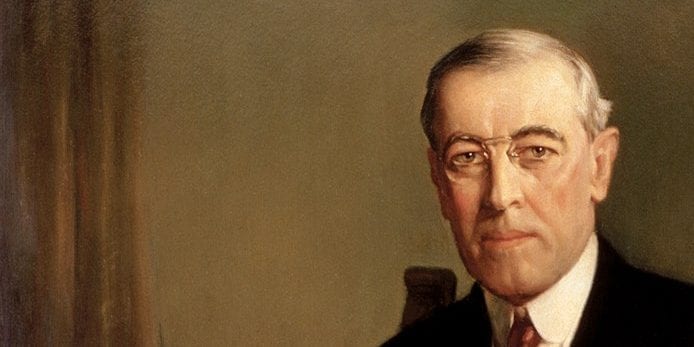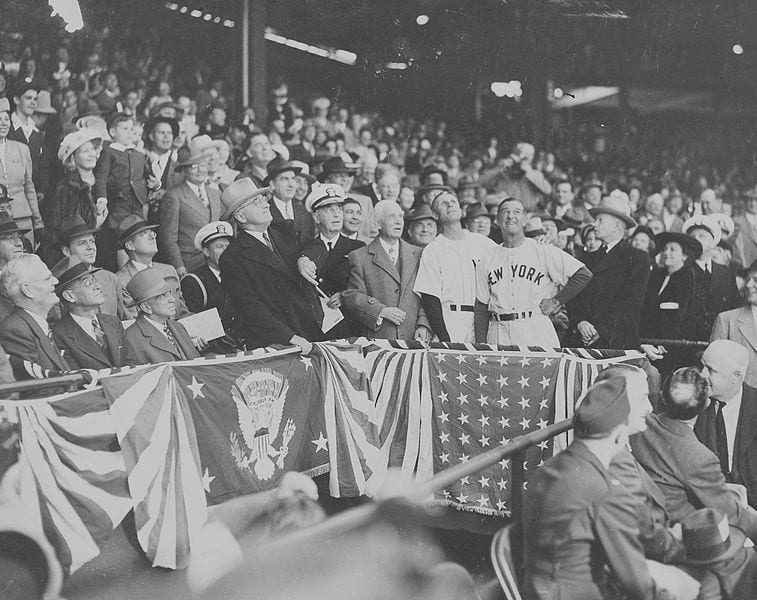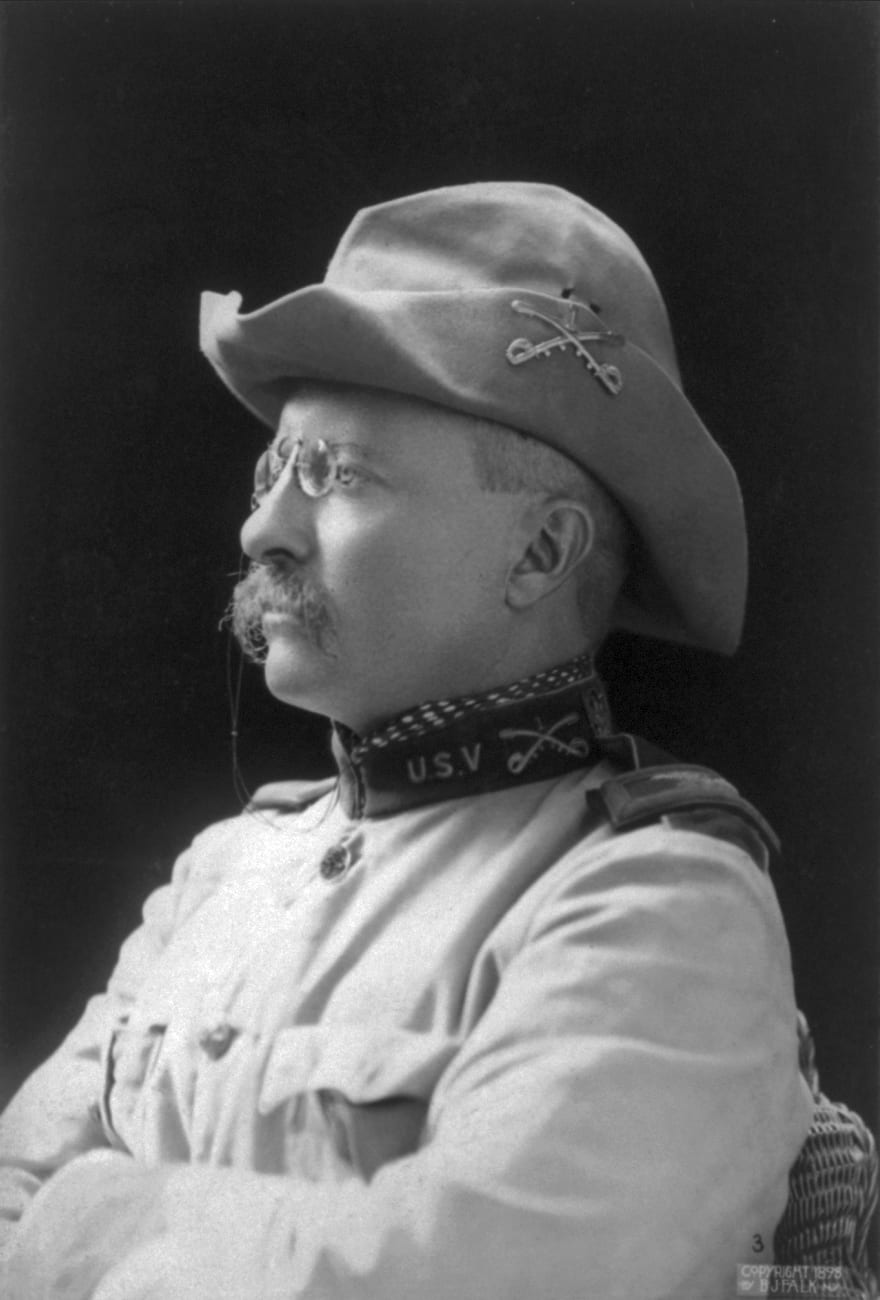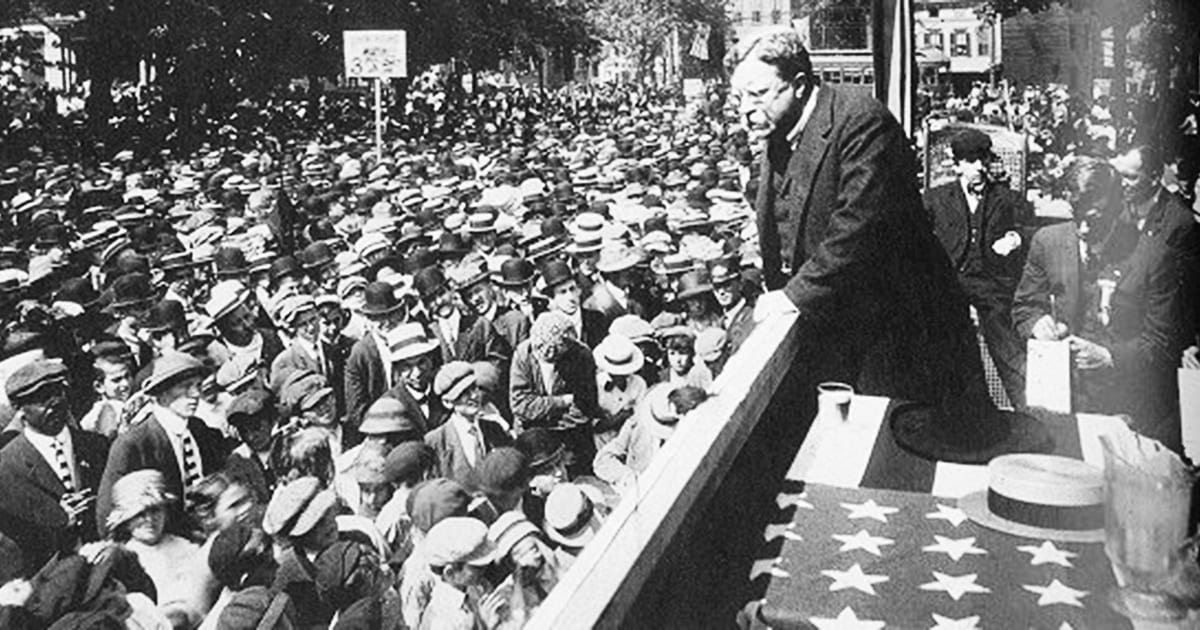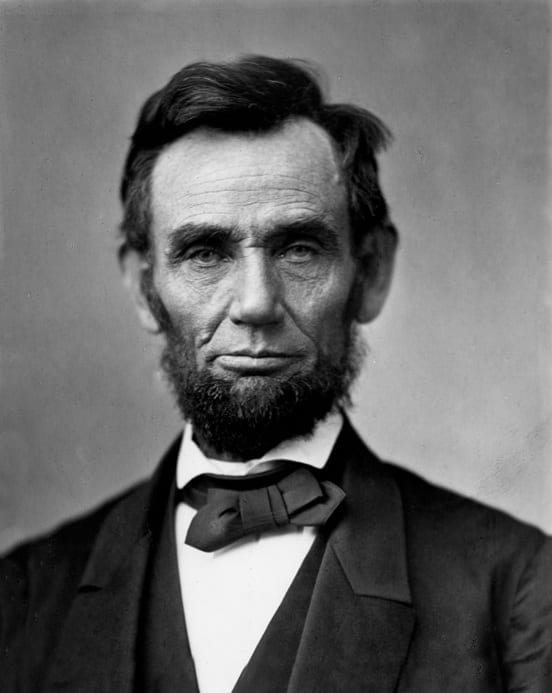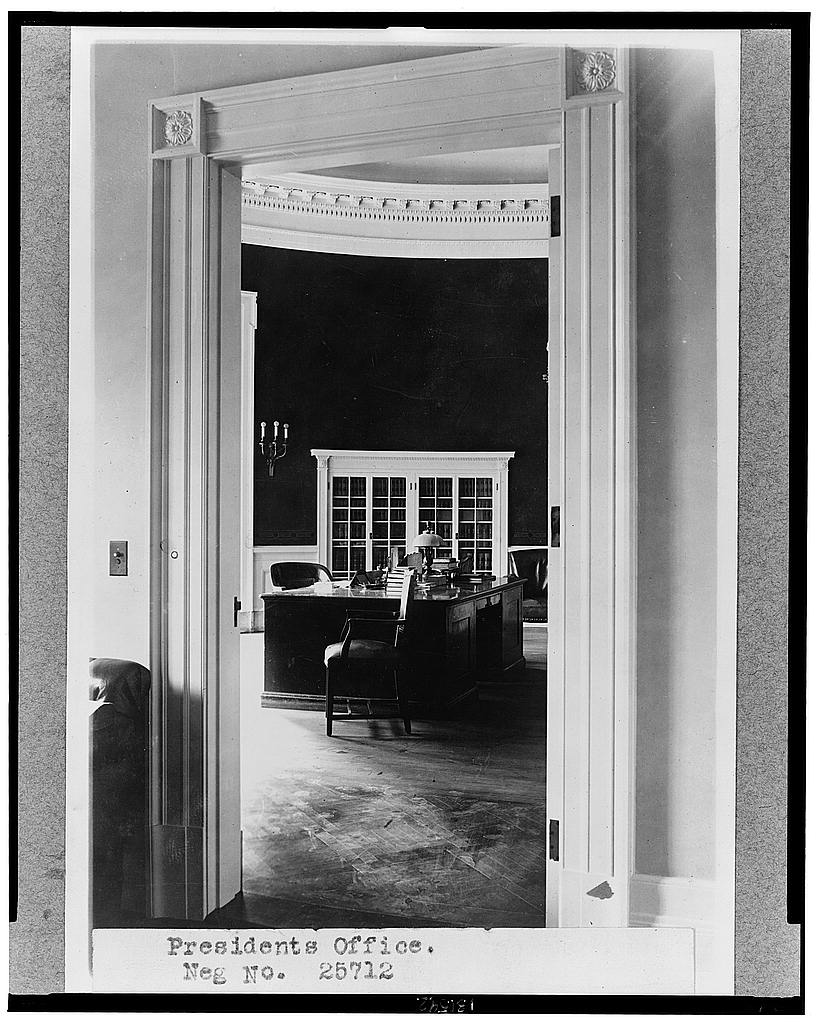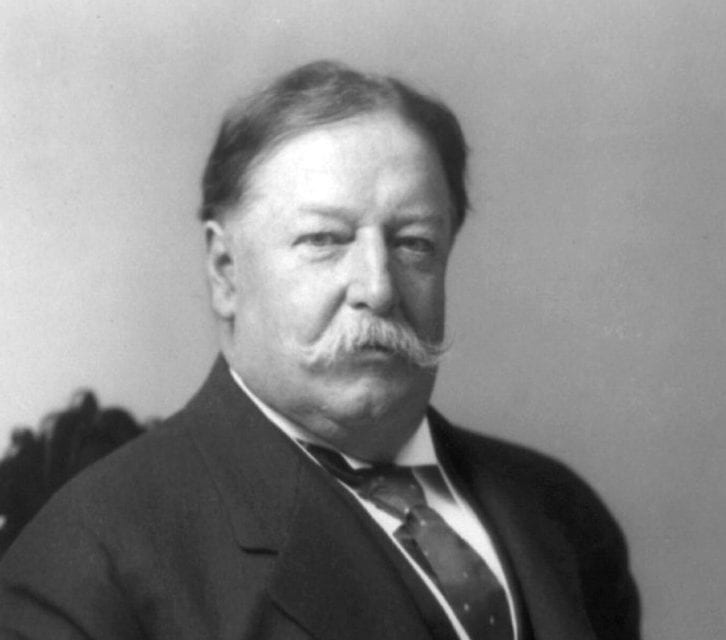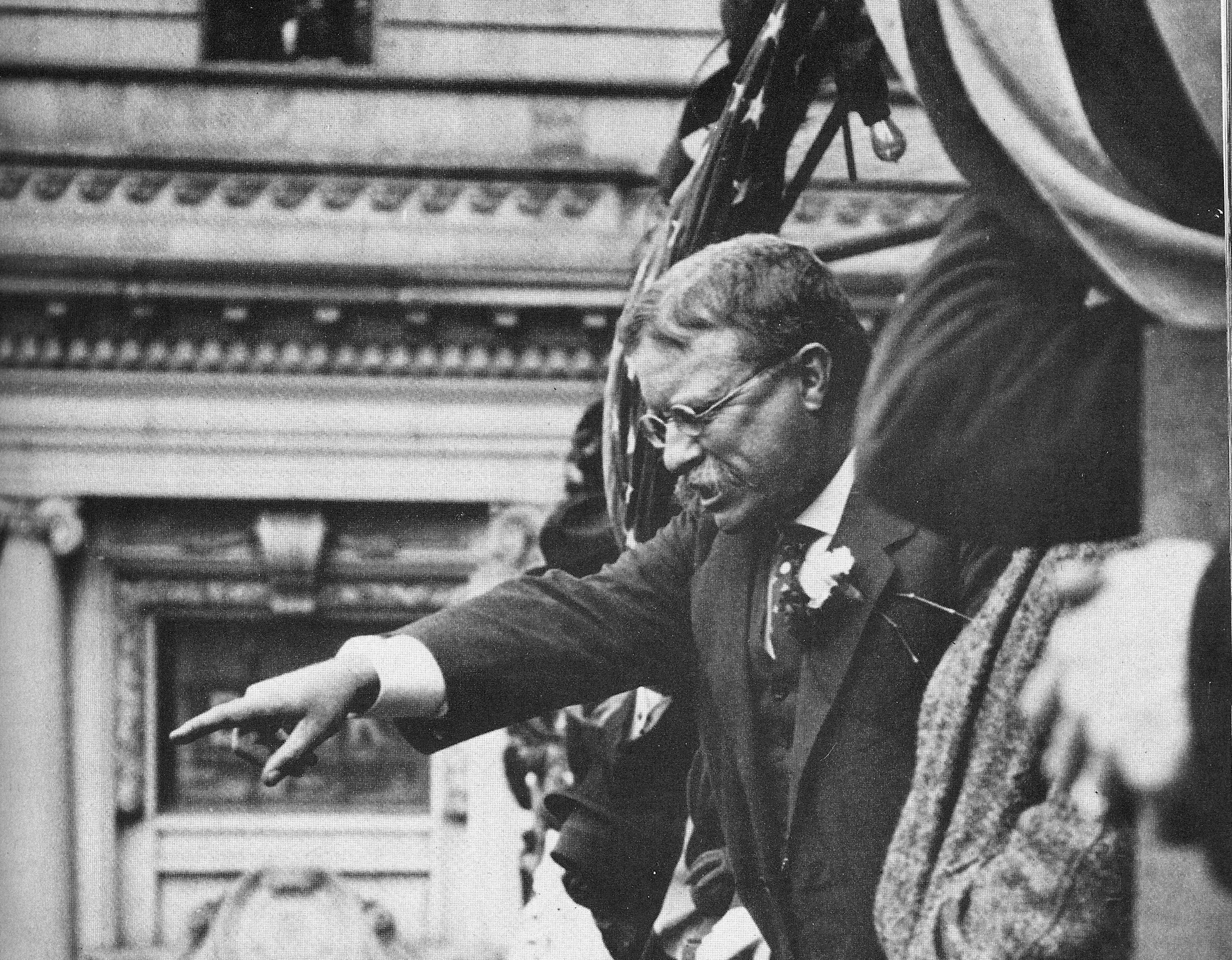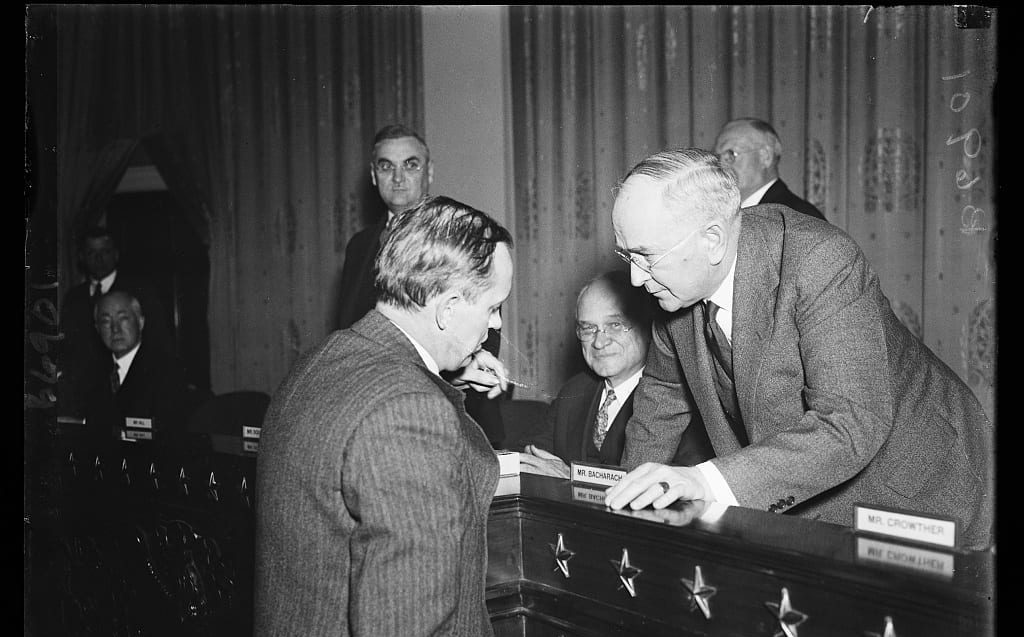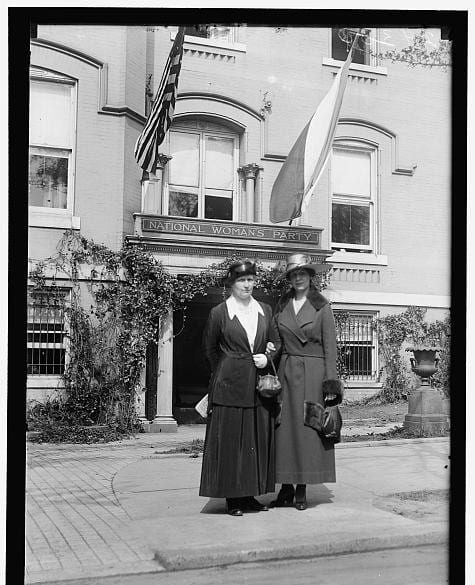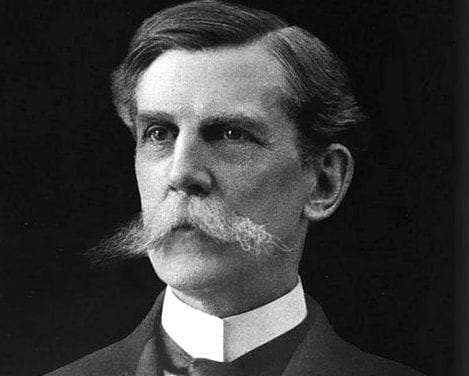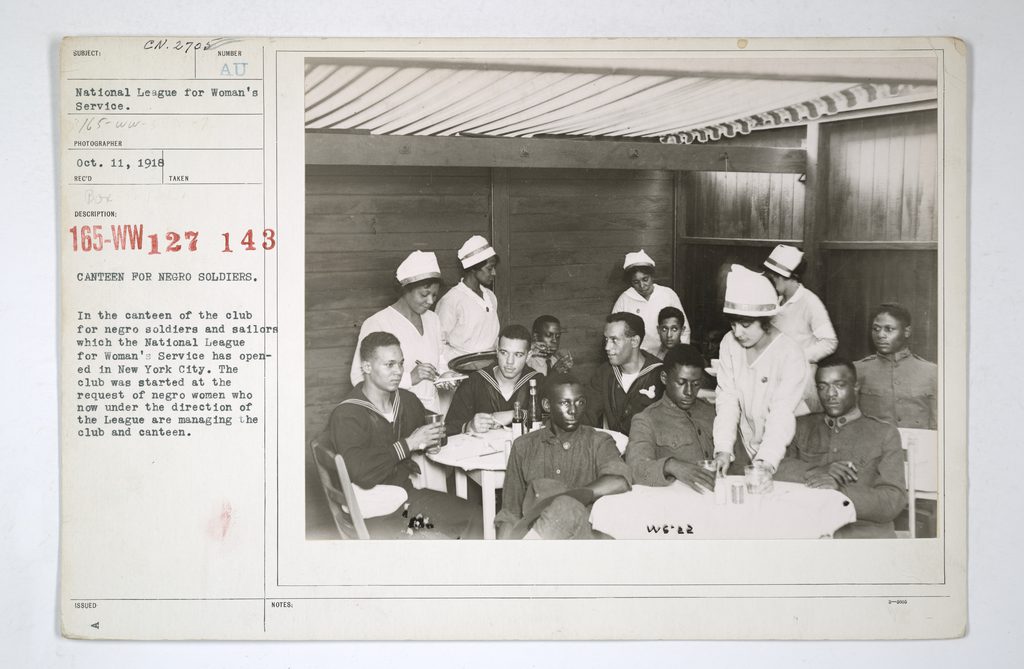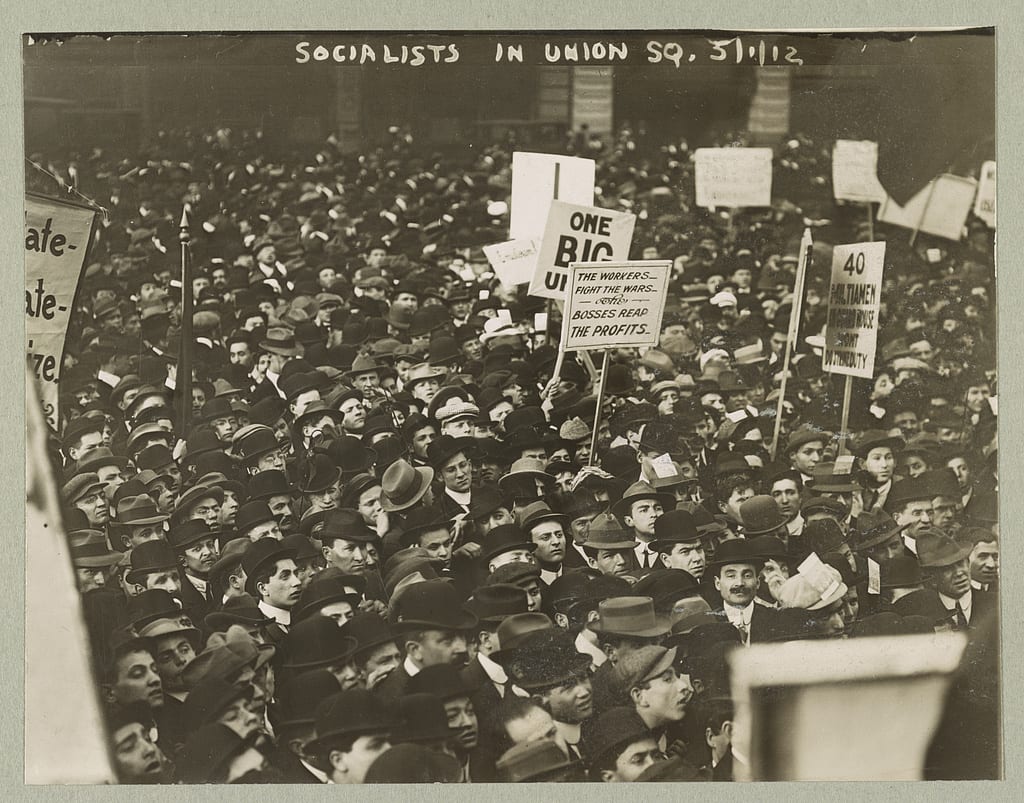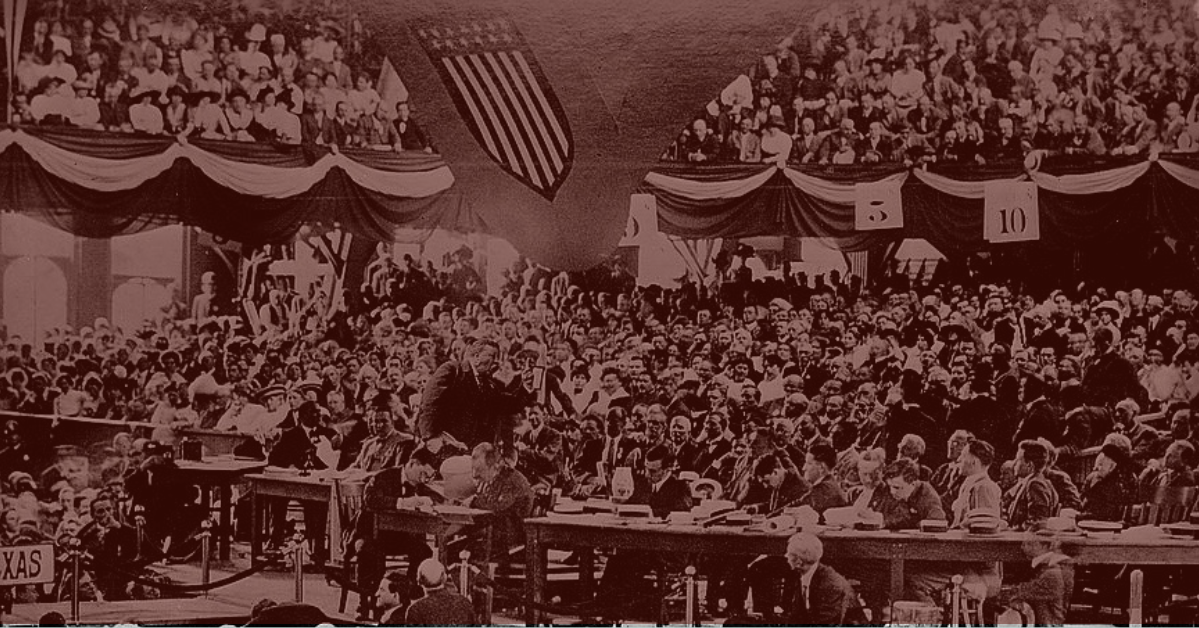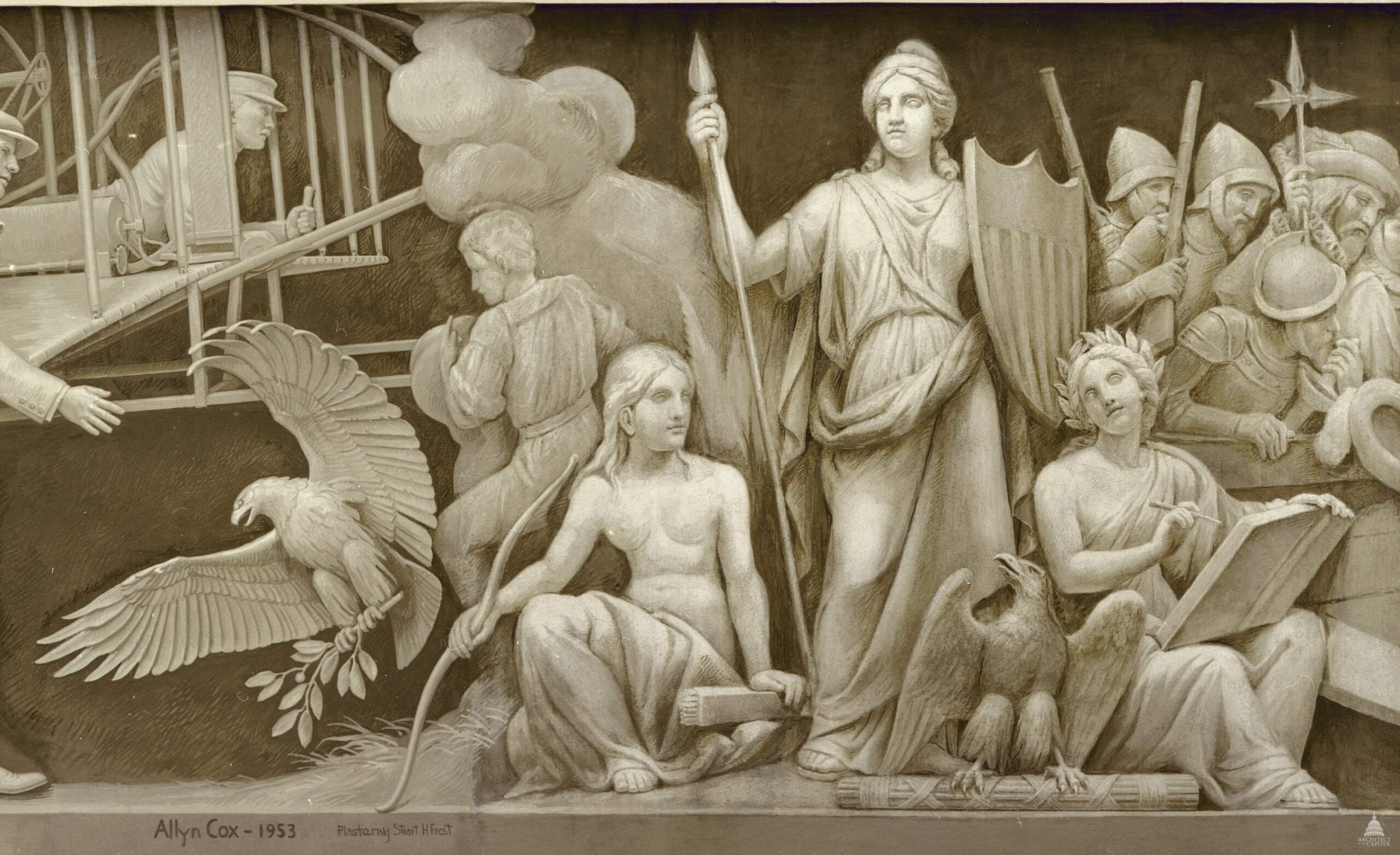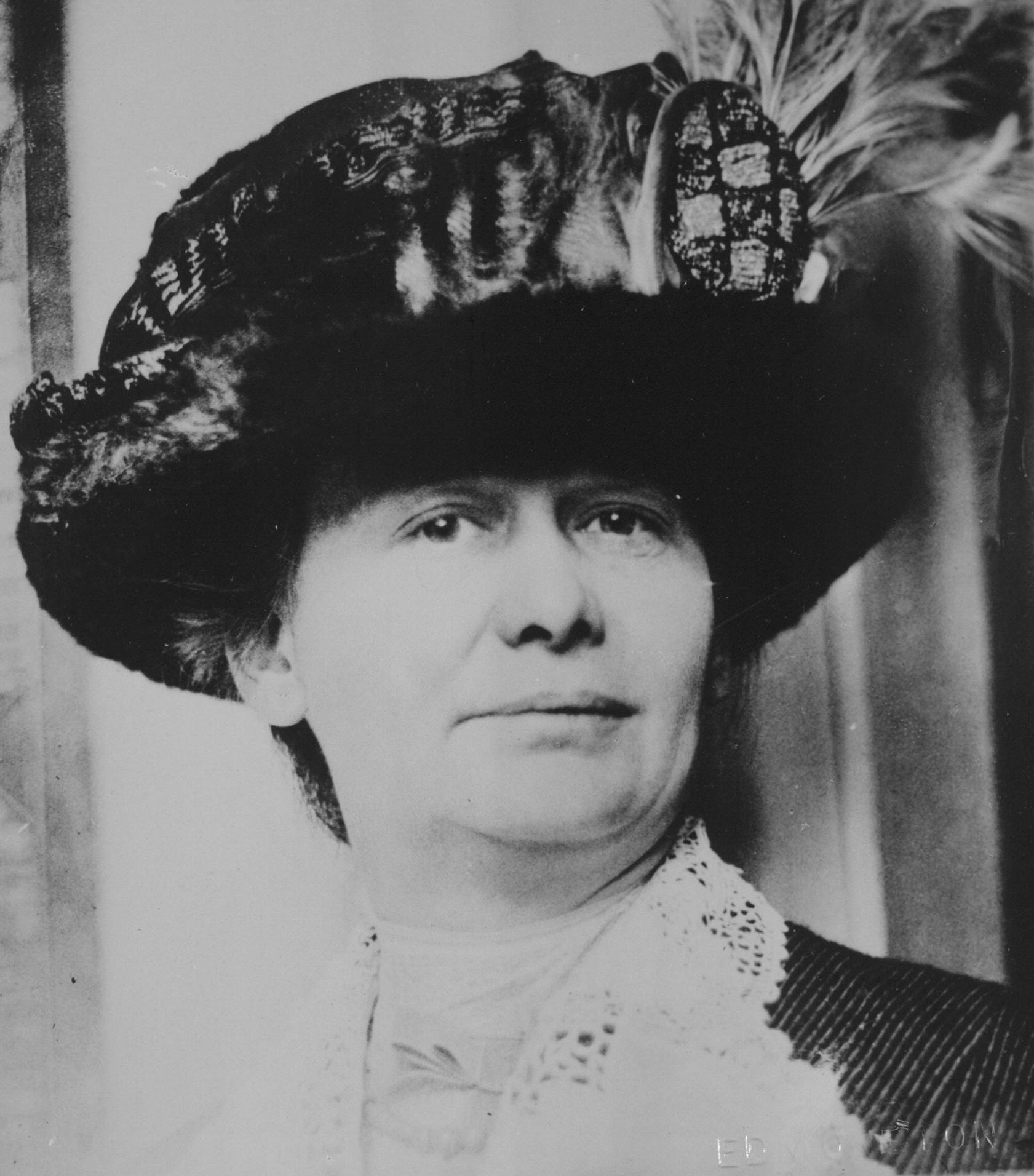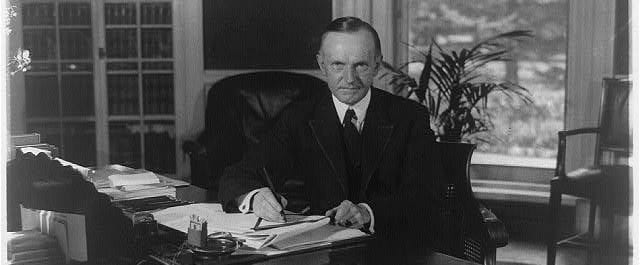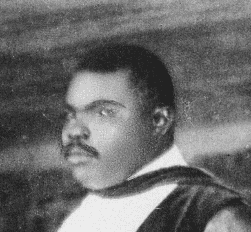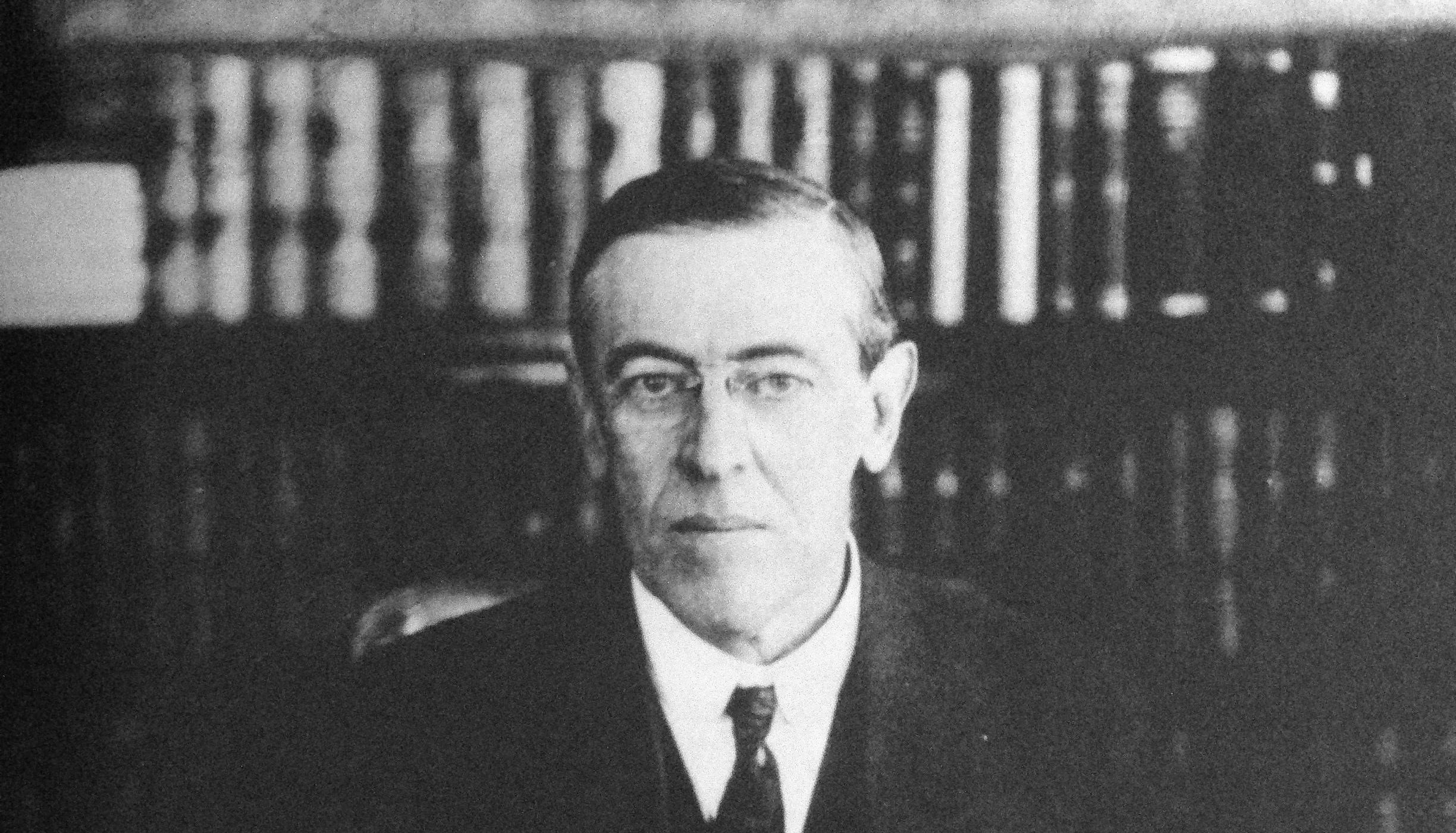


Introduction
This case took place during the first Red Scare. In the aftermath of the Russian Revolution and World War I, a series of bombings, strikes, and riots shook the United States. In 1920, four thousand suspected radicals were arrested, three thousand of whom were deported. In an effort to combat revolutionary and anarchist threats during this time, states passed criminal anarchy and syndicalism laws. These laws punished individuals or groups who advocated for or organized violent overthrow of government. Around the same time, New York established an investigative commission known as the Lusk Committee that raided, arrested, and seized materials of suspected Communists and Socialists, including the defendant in this case, Benjamin Gitlow, publisher of the “Left Wing Manifesto.” Gitlow was represented by Clarence Darrow, the famous defense attorney in the Scopes Monkey Trial the same year.
Gitlow v. New York is significant for a number of reasons. It was the first case that incorporated the First Amendment—that is, made it applicable to state and local government through the liberty provision of the due process clause of the Fourteenth Amendment. For the first time federal courts were authorized to review state laws if they violated free speech. Prior to this, there could be no appeal from a state to a federal court. Justice Sanford’s opinion combines two important First Amendment tests: the bad tendency test and the ad hoc self-restraintist balancing test. Borrowed from the common law of seditious libel, the bad tendency test was an extremely restrictive standard. It is encapsulated by Sanford’s statement that “the immediate danger is none the less real and substantial because the effect of a given utterance cannot be accurately foreseen. . . . A single revolutionary spark may kindle a fire that, smoldering for a time, may burst into a sweeping and destructive conflagration.” Under the bad tendency test, speech may be barred if it vaguely and remotely “tends” to threaten public order. Authorities are given broad discretion and wide latitude to restrict speech as they see fit. In contrast to the preferred freedoms doctrine, the ad hoc self-restraintist balancing test tilts the scale of justice in favor of the state government’s interest under its police powers. The burden is therefore on the dissenter to show that the state acted unreasonably or arbitrarily in carrying out its authority. Provided the state acted reasonably, a low threshold to meet, the Supreme Court will defer to elected officials and will not second-guess the decisions of state legislatures. Although the First Amendment was incorporated in this case, the Court nonetheless determined that New York’s enactment of the criminal anarchy law was a reasonable exercise of its police power to maintain public safety and order. Gitlow is further noteworthy for Justice Holmes’ dissenting opinion that “every idea is an incitement.” This provocative statement highlights the difficulty of neatly separating protected speech from illegal advocacy, since action is often implicit to speech.
Source: 268 U.S. 652, https://www.law.cornell.edu/supremecourt/text/268/652.
- JUSTICE SANFORD delivered the opinion of the Court.
Benjamin Gitlow was indicted in the Supreme Court of New York, with three others, for the statutory crime of criminal anarchy. . . .
The contention here is that the statute, by its terms and as applied in this case, is repugnant to the due process clause of the Fourteenth Amendment. Its material provisions are:
“§ 160. Criminal anarchy defined. Criminal anarchy is the doctrine that organized government should be overthrown by force or violence, or by assassination of the executive head or of any of the executive officials of government, or by any unlawful means. The advocacy of such doctrine either by word of mouth or writing is a felony.” . . .
There was no evidence of any effect resulting from the publication and circulation of the manifesto.
No witnesses were offered in behalf of the defendant.
Extracts from the manifesto are set forth in the margin. Coupled with a review of the rise of socialism, it condemned the dominant “moderate socialism” for its recognition of the necessity of the democratic parliamentary state; repudiated its policy of introducing socialism by legislative measures, and advocated, in plain and unequivocal language, the necessity of accomplishing the “Communist Revolution” by a militant and “revolutionary socialism,” based on “the class struggle” and mobilizing the “power of the proletariat in action,” through mass industrial revolts developing into mass political strikes and “revolutionary mass action,” for the purpose of conquering and destroying the parliamentary state and establishing in its place, through a “revolutionary dictatorship of the proletariat,” the system of communist socialism. The then recent strikes in Seattle and Winnipeg were cited as instances of a development already verging on revolutionary action and suggestive of proletarian dictatorship, in which the strike-workers were “trying to usurp the functions of municipal government,” and revolutionary socialism, it was urged, must use these mass industrial revolts to broaden the strike, make it general and militant, and develop it into mass political strikes and revolutionary mass action for the annihilation of the parliamentary state. . . .
The manifesto, plainly, is neither the statement of abstract doctrine nor, as suggested by counsel, mere prediction that industrial disturbances and revolutionary mass strikes will result spontaneously in an inevitable process of evolution in the economic system. It advocates and urges in fervent language mass action which shall progressively foment industrial disturbances and, through political mass strikes and revolutionary mass action, overthrow and destroy organized parliamentary government. It concludes with a call to action in these words: “The proletariat revolution and the Communist reconstruction of society—the struggle for these—is now indispensable. . . . The Communist International calls the proletariat of the world to the final struggle!”
This is not the expression of philosophical abstraction, the mere prediction of future events; it is the language of direct incitement.
The means advocated for bringing about the destruction of organized parliamentary government, namely, mass industrial revolts usurping the functions of municipal government, political mass strikes directed against the parliamentary state, and revolutionary mass action for its final destruction, necessarily imply the use of force and violence and, in their essential nature, are inherently unlawful in a constitutional government of law and order. That the jury were warranted in finding that the manifesto advocated not merely the abstract doctrine of overthrowing organized government by force, violence, and unlawful means, but action to that end, is clear.
For present purposes, we may and do assume that freedom of speech and of the press which are protected by the First Amendment from abridgment by Congress are among the fundamental personal rights and “liberties” protected by the due process clause of the Fourteenth Amendment from impairment by the States. . . .
It is a fundamental principle, long established, that the freedom of speech and of the press which is secured by the Constitution does not confer an absolute right to speak or publish, without responsibility, whatever one may choose, or an unrestricted and unbridled license that gives immunity for every possible use of language and prevents the punishment of those who abuse this freedom. . . .
That a state in the exercise of its police power may punish those who abuse this freedom by utterances inimical to the public welfare, tending to corrupt public morals, incite to crime, or disturb the public peace, is not open to question. . . .
And, for yet more imperative reasons, a state may punish utterances endangering the foundations of organized government and threatening its overthrow by unlawful means. These imperil its own existence as a constitutional state. Freedom of speech and press . . . does not protect disturbances to the public peace or the attempt to subvert the government. It does not protect publications or teachings which tend to subvert or imperil the government or to impede or hinder it in the performance of its governmental duties. It does not protect publications prompting the overthrow of government by force; the punishment of those who publish articles which tend to destroy organized society being essential to the security of freedom and the stability of the state. And a state may penalize utterances which openly advocate the overthrow of the representative and constitutional form of government of the United States and the several states, by violence or other unlawful means. In short, this freedom does not deprive a state of the primary and essential right of self-preservation; which, so long as human governments endure, they cannot be denied. . . .
By enacting the present statute, the state has determined, through its legislative body, that utterances advocating the overthrow of organized government by force, violence, and unlawful means are so inimical to the general welfare and involve such danger of substantive evil that they may be penalized in the exercise of its police power. That determination must be given great weight. Every presumption is to be indulged in favor of the validity of the statute. And the case is to be considered “in the light of the principle that the state is primarily the judge of regulations required in the interest of public safety and welfare”; and that its police “statutes may only be declared unconstitutional where they are arbitrary or unreasonable attempts to exercise authority vested in the state in the public interest.”
That utterances inciting to the overthrow of organized government by unlawful means present a sufficient danger of substantive evil to bring their punishment within the range of legislative discretion is clear. Such utterances, by their very nature, involve danger to the public peace and to the security of the state. They threaten breaches of the peace, and ultimate revolution. And the immediate danger is none the less real and substantial because the effect of a given utterance cannot be accurately foreseen. The state cannot reasonably be required to measure the danger from every such utterance in the nice balance of a jeweler’s scale. A single revolutionary spark may kindle a fire that, smoldering for a time, may burst into a sweeping and destructive conflagration. It cannot be said that the state is acting arbitrarily or unreasonably when, in the exercise of its judgment as to the measures necessary to protect the public peace and safety, it seeks to extinguish the spark without waiting until it has enkindled the flame or blazed into the conflagration. It cannot reasonably be required to defer the adoption of measures for its own peace and safety until the revolutionary utterances lead to actual disturbances of the public peace or imminent and immediate danger of its own destruction; but it may, in the exercise of its judgment, suppress the threatened danger in its incipiency. . . .
We cannot hold that the present statute is an arbitrary or unreasonable exercise of the police power of the state unwarrantably infringing the freedom of speech or press, and we must and do sustain its constitutionality. . . .
And finding, for the reasons stated, that the statute is not, in itself, unconstitutional, and that it has not been applied in the present case in derogation of any constitutional right, the judgment of the Court of Appeals is
Affirmed.
JUSTICE HOLMES, dissenting.
- JUSTICE BRANDEIS and I are of opinion that this judgment should be reversed. The general principle of free speech, it seems to me, must be taken to be included in the Fourteenth Amendment, in view of the scope that has been given to the word “liberty” as there used, although perhaps it may be accepted with a somewhat larger latitude of interpretation than is allowed to Congress by the sweeping language that governs or ought to govern the laws of the United States. If I am right, then I think that the criterion sanctioned by the full Court in Schenck v. United States, applies. . . .
. . . If what I think the correct test is applied, it is manifest that there was no present danger of an attempt to overthrow the government by force on the part of the admittedly small minority who shared the defendant’s views. It is said that this manifesto was more than a theory, that it was an incitement. Every idea is an incitement. It offers itself for belief, and, if believed, it is acted on unless some other belief outweighs it or some failure of energy stifles the movement at its birth. The only difference between the expression of an opinion and an incitement in the narrower sense is the speaker’s enthusiasm for the result. Eloquence may set fire to reason. But whatever may be thought of the redundant discourse before us, it had no chance of starting a present conflagration. If, in the long run, the beliefs expressed in proletarian dictatorship are destined to be accepted by the dominant forces of the community, the only meaning of free speech is that they should be given their chance and have their way.
If the publication of this document had been laid as an attempt to induce an uprising against government at once, and not at some indefinite time in the future, it would have presented a different question. The object would have been one with which the law might deal, subject to the doubt whether there was any danger that the publication could produce any result, or in other words, whether it was not futile and too remote from possible consequences. But the indictment alleges the publication, and nothing more.
Annual Message to Congress (1925)
December 08, 1925
Conversation-based seminars for collegial PD, one-day and multi-day seminars, graduate credit seminars (MA degree), online and in-person.



